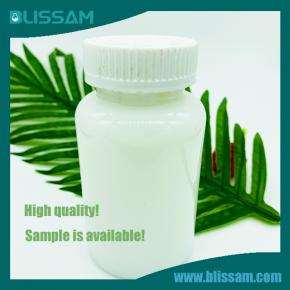Silicone emulsions are commonly used in a variety of industries, including personal care, healthcare, automotive, and construction. These emulsions are water-based mixtures of silicone oil and other ingredients, designed to provide a range of useful properties such as lubricity, softness, and water repellency. In this comprehensive guide, we will explore the composition, manufacturing process, properties, and applications of silicone emulsions, as well as their benefits and potential drawbacks.
Composition:
Silicone emulsions are composed of two main components – silicone oil and emulsifiers. Silicone oil, also known as polydimethylsiloxane (PDMS), is a colorless and odorless polymer made from repeating units of silicon and oxygen atoms. It is chemically inert, has a low surface tension, and is highly stable at high temperatures, making it an ideal ingredient for a wide range of applications. Emulsifiers are surfactants that help to mix silicone oil with water by reducing the surface tension between the two liquids. They contain hydrophilic (water-loving) and hydrophobic (water-repelling) parts, which allow them to form stable emulsions.
Manufacturing process:
Silicone emulsions are typically made using a high shear mixing process, which involves blending the silicone oil and emulsifiers together at high speed. This process creates small droplets of silicone oil dispersed in water, resulting in a stable emulsion. Other ingredients such as thickeners, preservatives, and fragrances may also be added during the manufacturing process to enhance the properties and appearance of the emulsion.
Properties:
The properties of silicone emulsions are highly dependent on the type and concentration of silicone oil, emulsifiers, and other ingredients used in the formulation. Some common properties of silicone emulsions include: 1. Lubricity: Silicone emulsions have a low coefficient of friction, which makes them excellent lubricants. They can reduce friction and wear in systems such as automotive engines, industrial machinery, and medical devices. 2. Softness: Silicone emulsions can impart a soft and silky feel to fabrics and skin. They are commonly used in fabric softeners, hair conditioners, and moisturizing creams. 3. Water repellency: Due to the hydrophobic nature of silicone oil, silicone emulsions are water repellent. This property makes them suitable for use in waterproof coatings, sealants, and personal care products for waterproofing and moisture resistance. 4. Thermal stability: Silicone emulsions can withstand a wide range of temperatures without breaking down or losing their properties. They can remain stable at extreme temperatures, ranging from -80°C to 300°C. 5. Chemical resistance: Silicone emulsions have excellent chemical resistance, making them resistant to acids, bases, solvents, and other harsh chemicals. This property makes them suitable for use in industrial and construction applications.
Applications:
Silicone emulsions have a wide range of applications in various industries, including: 1. Personal care: Silicone emulsions are used in personal care products such as hair care, skin care, and cosmetic products for their lubricating, softening, and moisturizing properties. 2. Pharmaceuticals: Silicone emulsions are commonly used in topical medications and ointments due to their ability to form a protective film over the skin, allowing the active ingredients to be absorbed more effectively. 3. Automotive: Silicone emulsions are used in automotive lubricants, sealants, and coatings for their lubricating, water-resistant, and heat-resistant properties. 4. Construction: Silicone emulsions are used in construction materials such as paints, sealants, and coatings for their water repellency, chemical resistance, and thermal stability.
Benefits:
Some of the main benefits of using silicone emulsions include: 1. Cost-effective: Silicone emulsions are cost-effective compared to other types of lubricants, sealants, and coatings. 2. Versatile: Silicone emulsions can be formulated to provide a wide range of properties and can be used in various applications. 3. Non-toxic: Silicone emulsions are non-toxic and safe to use in personal care and pharmaceutical products. 4. Environmentally friendly: Silicone emulsions are biodegradable, making them a more environmentally friendly option compared to other types of lubricants and coatings.
Potential drawbacks:
While silicone emulsions have many benefits, there are some potential drawbacks to consider: 1. Can stain: In some cases, silicone emulsions can stain fabrics and surfaces, especially if they are not fully absorbed. 2. May cause buildup: In personal care products, high concentrations of silicone emulsions can cause buildup on hair and skin, leading to a greasy feeling. 3. Difficult to remove: Due to their water-resistant properties, silicone emulsions can be challenging to remove from surfaces, which can be an issue during cleanup.
Silicone emulsions are widely used in various industries due to their unique properties and versatile applications. They are composed of silicone oil and emulsifiers and can be manufactured to provide desired properties such as lubricity, softness, and water repellency. While they have many benefits, including cost-effectiveness and non-toxicity, they may also have some potential drawbacks, such as staining and difficulty in removal. Overall, silicone emulsions are an important innovation in the chemical industry, with a wide range of uses and potential for future advancements

Contact:
Phone: +86-15957191858
E-mail: info@blissam.com
Whatsapp:+8615957191858
Add: A647, No. 9, Xiyuan Road, Xihu District, Hangzhou, Zhejiang, China
We chat
